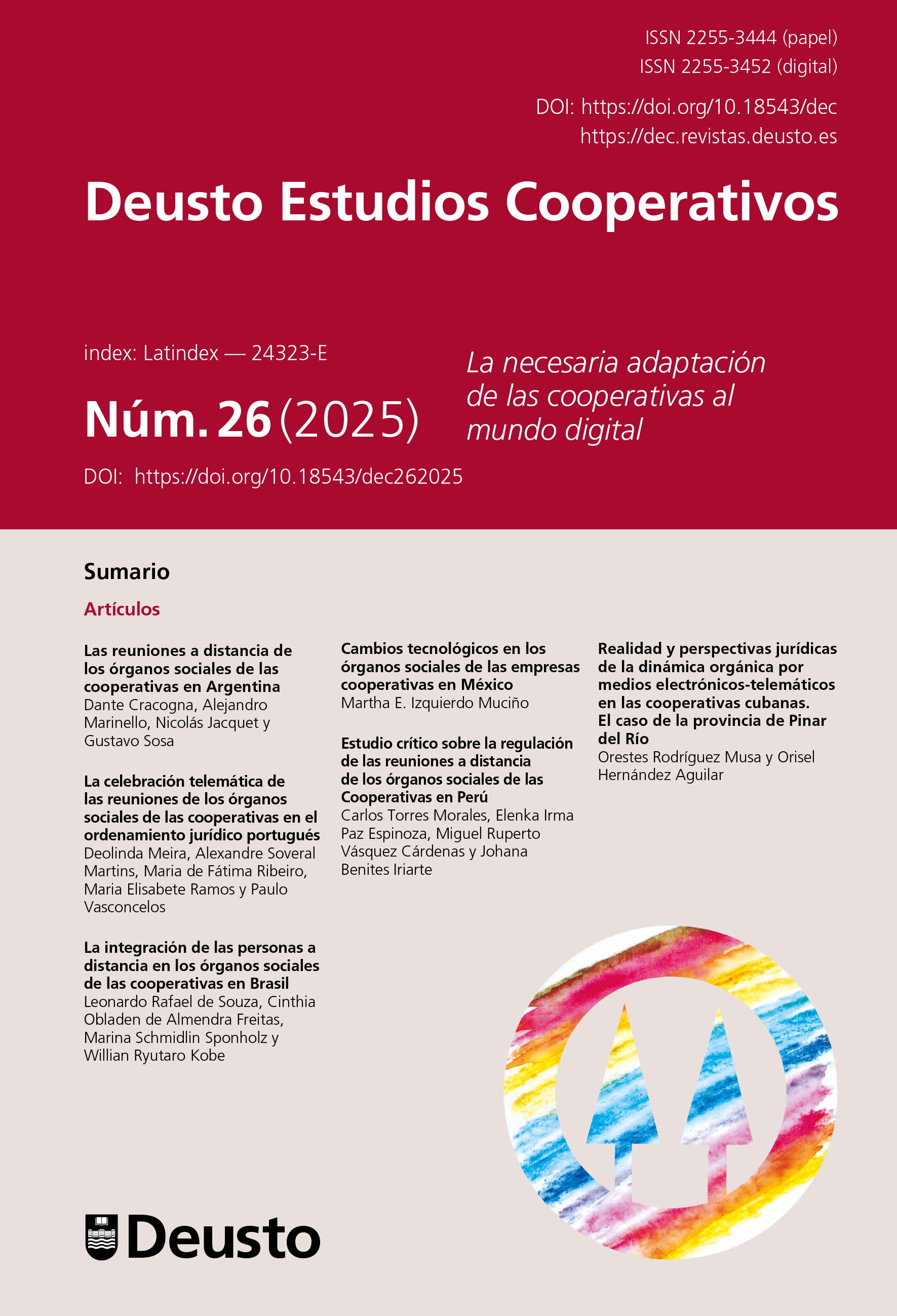Remote meetings of the governing bodies of cooperatives in Argentina
Abstract
The entry into force of the Civil and Commercial Code in 2015 paved the way for private legal entities to hold meetings of their governing bodies by electronic and telematic means. The absence of this issue in Law 20,337 on Cooperatives did not prevent the national cooperative enforcement authority from issuing a series of resolutions since 2019 authorizing and regulating remote meetings of cooperative governing bodies. This process was strongly driven by the Covid-19 pandemic in 2020, given the need to ensure the continuity of the institutional functioning of entities. These measures have made it possible to overcome the difficulties posed at the socio-health level and have remained in force once the pandemic has been overcome. The article analyses the legal and regulatory framework for remote meetings of the governing bodies of cooperatives in Argentina, considering the provisions of the Civil and Commercial Code, the Cooperatives Act and the resolutions of the INAES, as well as the doctrine and guidance documents of the same enforcement authority. It considers the situation of the different types of governing bodies, particularly about the assembly, addressing issues related to its convening and holding, as well as key aspects for democratic functioning, such as ensuring the voting system process.
Received: 18 May 2025
Accepted: 9 September 2025
Downloads
Copyright (c) 2025 University of Deusto

This work is licensed under a Creative Commons Attribution-NonCommercial 4.0 International License.
The authors, by submitting their manuscripts to the Deusto Estudios Cooperativos (DEC), accept the conditions listed below on copyright and undertake to comply with them. They do not sign any document of assignment of rights to the Publisher.
1. Authorship: The author must be the sole creator of the work or legally acting on behalf of and with the full agreement of all the authors.
2. Copyright and Code of conduct:
a) Authors warrant that their work is original; has not been previously copyrighted or published in any form; is not under consideration for publication elsewhere; its submission and publication do not violate the Ethical Guidelines of DEC and any codes (of conduct), laws or any rights of any third party; and no publication payment by the Publisher (University of Deusto) is required.
b) Authors grant to the Publisher the worldwide, sub-licensable, and royalty-free right to exploit the work in all forms and media of expression, now known or developed in the future, for educational and scholarly purposes.
c) Authors retain the right to present, display, distribute, develop, and republish their work to progress their scientific career provided the original publication source (DEC) is properly acknowledged.
d) Authors warrant that no permissions or licences of any kind have been granted or will be granted that might infringe the rights granted to the Publisher.


3.jpg)
3.jpg)







